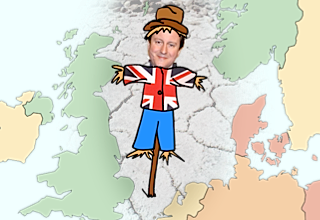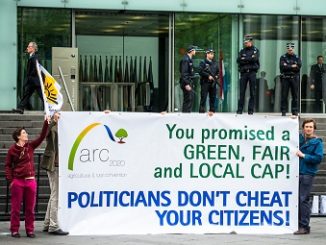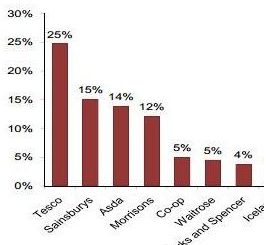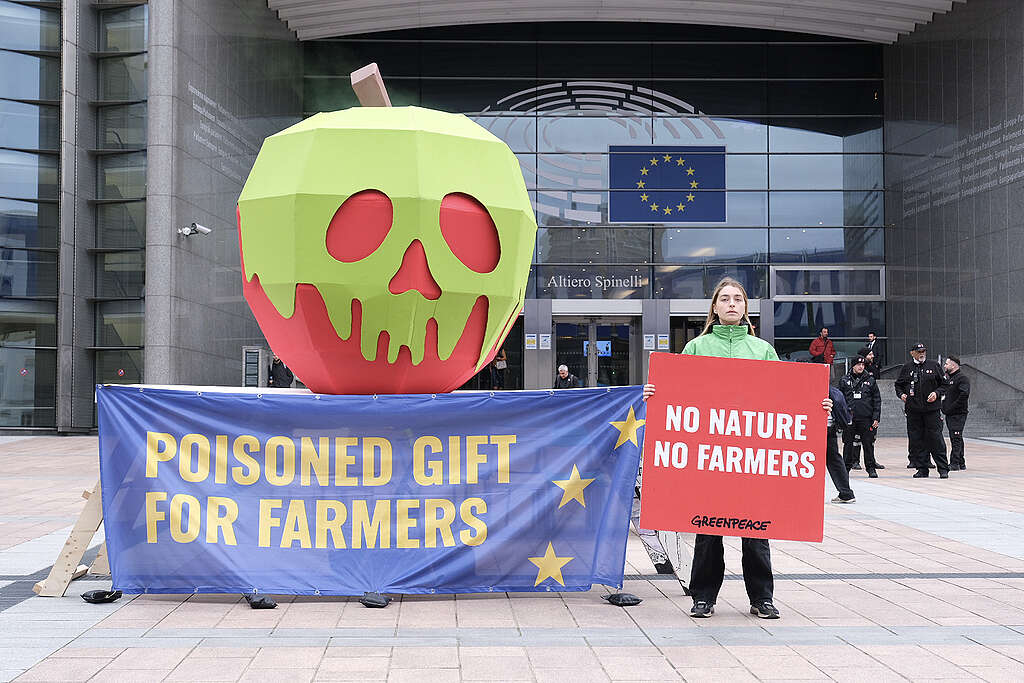
The European Parliament has given its blessing to a fast-track approval process to push through a proposal aimed at simplifying the EU’s farming subsidy programme, which effectively guts the policy of its environmental requirements. Natasha Foote reports.
The European Parliament has given its blessing to a fast-track approval process to push through a proposal aimed at simplifying the EU’s farming subsidy programme, but which effectively guts the policy of its environmental requirements.
The vote, which took place on Thursday (11 April), allows the proposal to skip the usual process through the Parliamentary approval procedure, instead pushing it straight to full-house vote during the 22-25 April plenary session. This is the final plenary of the current mandate before elections.
Only the Greens and the Left opposed the move, which garnered widespread support from the rest of the Parliament. See image below from Copa-Coga on the voting by group.
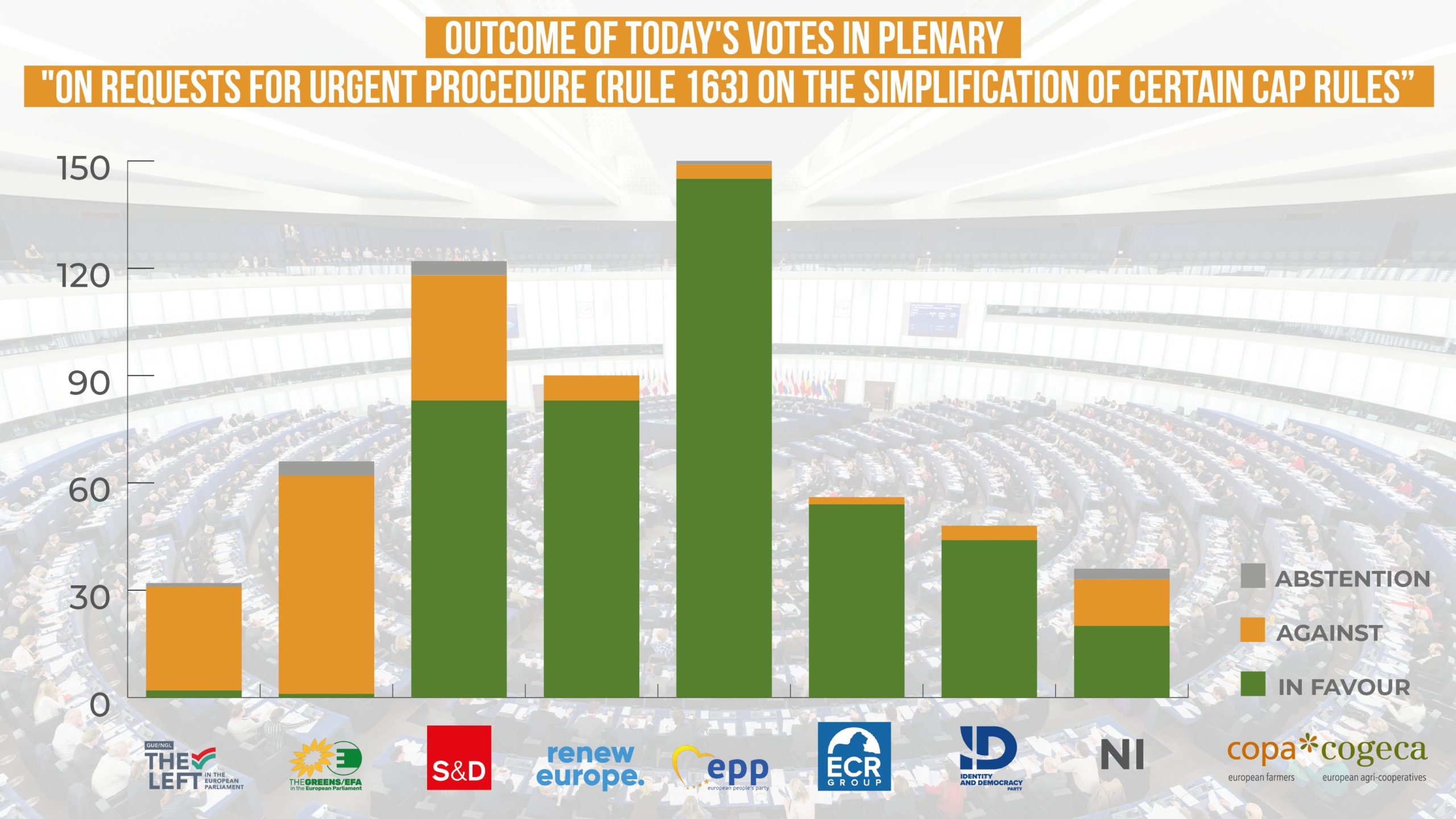
The proposal aims to lighten the administrative load on farmers amid continuing protests against what is seen by protestors as excessive regulation, unfair pricing and trade competition.
Crucially, this would see mandatory environmental requirements in the Common Agricultural Policy (CAP) downgraded to voluntary, as well as more power shifted into the hands of member states. (Fuller analysis here)
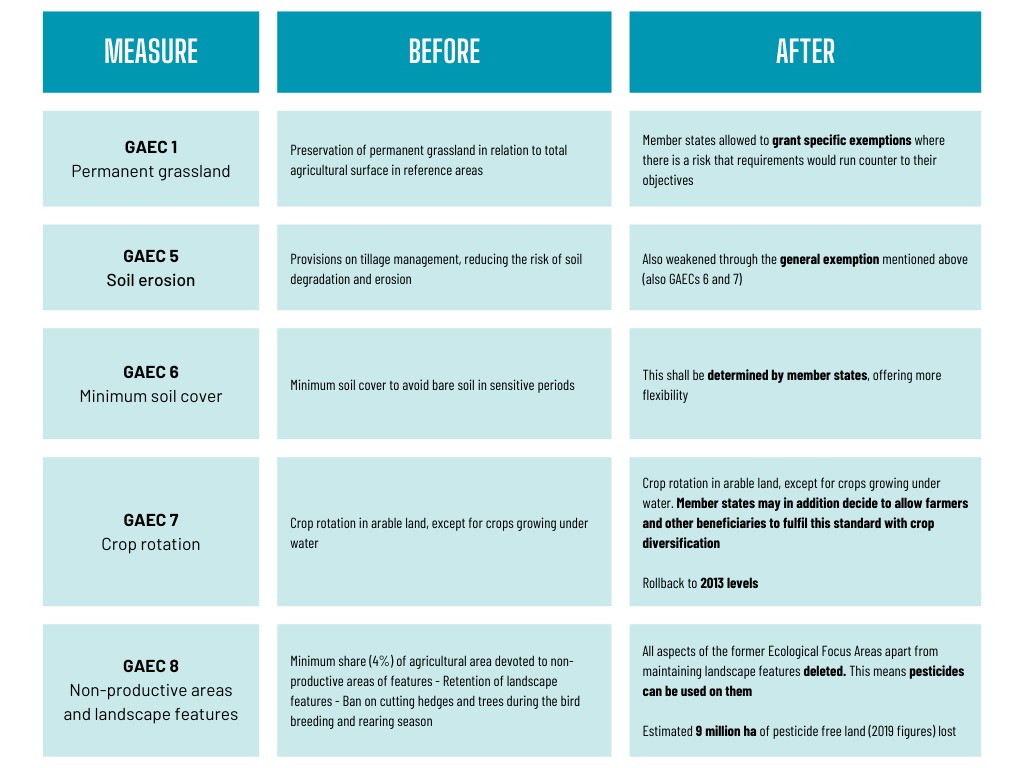
‘Consulted but not heard’ – and used to legitimise
The proposal has been marred in controversy since its announcement, which was put forward without an impact assessment. This was put down to the “political urgency” of tabling this proposal given the “crisis” situation in the sector. No details were offered on what constitutes a crisis.
Instead, the proposal was based on an “ad-hoc consultation process” that lasted one week, as well as written correspondence with four main EU-level farming organisations asking them for proposals of measures.
However, despite making up half of the four consulted, small farmers association ECVC together with the EU organic association IFOAM have staunchly opposed the plan.
“The proposed simplification rules will ultimately only exacerbate discontent in the farming community as they neither support farmers in increasing their resilience nor do they address the real issues that farmers face,” the groups wrote in a joint letter addressed to Commission President Ursula von der Leyen, sent on the day before the vote.
Read/download the letter in full Letter_ECVC_IFOAMEU CAP-simplification-rules
The organisations maintain that “almost none” of their concerns were reflected in the final output, raising concerns that their participation was used to “legitimise the process”.
Likewise, Greenpeace EU agriculture policy director Marco Contiero called the stripping away of environmental protections a “poisoned gift” for farmers.
The group, who installed a giant poisoned apple outside the Parliament to protest ahead of Thursday’s vote, warn the move will “doom farmers to worse droughts, floods and failed harvests while doing nothing to address their precarious economic situation.”
Despite this, centre-right MEP Norbert Lins, who chairs the Parliament’s agriculture committee, told ARC that the adoption of the vote with “such a huge majority” shows that the “majority of MEPs is aware of the urgent needs of our farmers.”
Meanwhile, EU farmers’ association Copa-Cogeca were also among those that welcomed the outcome of the vote as an important way to “address farmers concerns and provide them with the necessary flexibilities to implement the new CAP”.
The lobby group maintains that the changes, which introduce exemptions to what were mandatory measures, do not remove the obligations to comply with environmental standards. Instead the group maintains that the changes will allow “more flexibility in implementing the policy in a way which considers the pedo-climatic and local conditions and specificities across the EU.”
Impact… Q&A?
In the absence of an impact assessment, the Commission has since circulated a Q&A document among lawmakers, seen by ARC, aimed at explaining the proposal and its implications.
In it, the Commission maintains the proposal “strikes a balance” between supporting the sustainable farming transition, flexibility in implementation, and the “objective to reach a quick agreement between the European Parliament and the Council”.
Despite multiple requests from member states for an impact assessment and queries on whether the Commission will provide this at a later date, the EU executive responds only with a promise to “review the CAP Strategic Plans later in the current programming period (2023-27)” to assess their effectiveness and overall impact, including on climate and environment objectives.
‘Unlawful, undemocratic’
The fast-track decision has left many civil society organisations questioning the legitimacy of the process.
Calling the proposal “unlawful and antidemocratic”, the European Environmental Bureau lambasted the lack of the scientific evidence to justify “why or how the removal of environmental requirements will support farmers in the short term”. As such, the Parliament’s decision to fast-track the vote on such a “flawed” proposal “sidelines democratic debate and hinders proper assessment of a reform that affects 30% of the EU budget,” the campaign group added.
Meanwhile Green MEP Thomas Waitz slammed those that voted in favour of the procedure, calling them a “wrecking ball” for environmental protection. “They destroy the last few green sprinkles in the CAP without impact assessment, democratic negotiations and debates,” he said.
What now?
The Parliament is now looking to align its position with that of the Council’s, who have already greenlit their position on the matter with minimal amendments. (full document Council_simplification) If both lawmakers are on the same page, this could see the proposal pushed through “before summer”, according to sources. And this seems possible, given that there has already been coordination between the two lawmakers.
“We received the Council’s position which were a few changes to the text compared to the Commission’s proposal,” centre-right Lins told ARC. The coordinators of all political parties in the AGRI committee are “aware of these” and are due to vote on the Council’s proposed changes on Monday (15 April) in the AGRI committee.
Likewise, a representative of the Belgian Presidency confirmed to ARC that it has “exchanged” with the Parliament before adding some “minor, technical changes”. They therefore “expect the [Parliament] to adopt that version”.
However, it is technically possible for other amendments to be added between now and the plenary vote – but that is where things get more complicated. “The [Parliament] has to adopt the same position as the Council otherwise a quick adoption is not possible,” the Presidency representative told ARC.
This is because any additional amendment would either have to be accepted outright by the Council – an unlikely prospect, according to sources – or would add extra steps to the negotiation process. As the April plenary is the last under this mandate, this would push the negotiations until after the elections.
However, while possible, garnering enough support for any additional amendments seems an unlikely prospect at this point, according to sources.
More
EU’s Nature Restoration Law at Critical Juncture after Pushback by Member States



